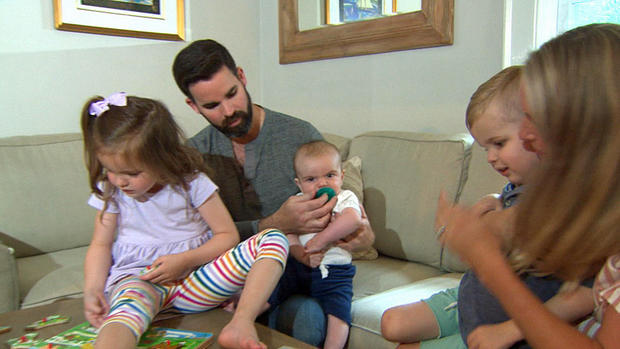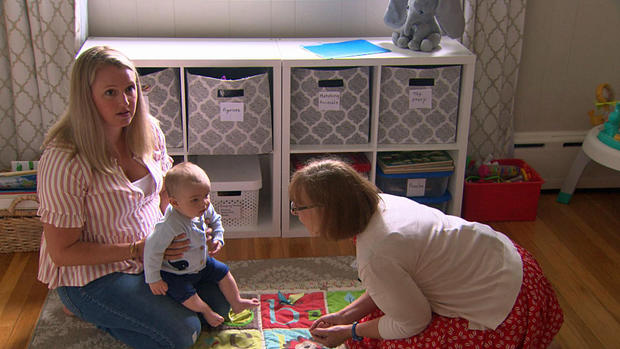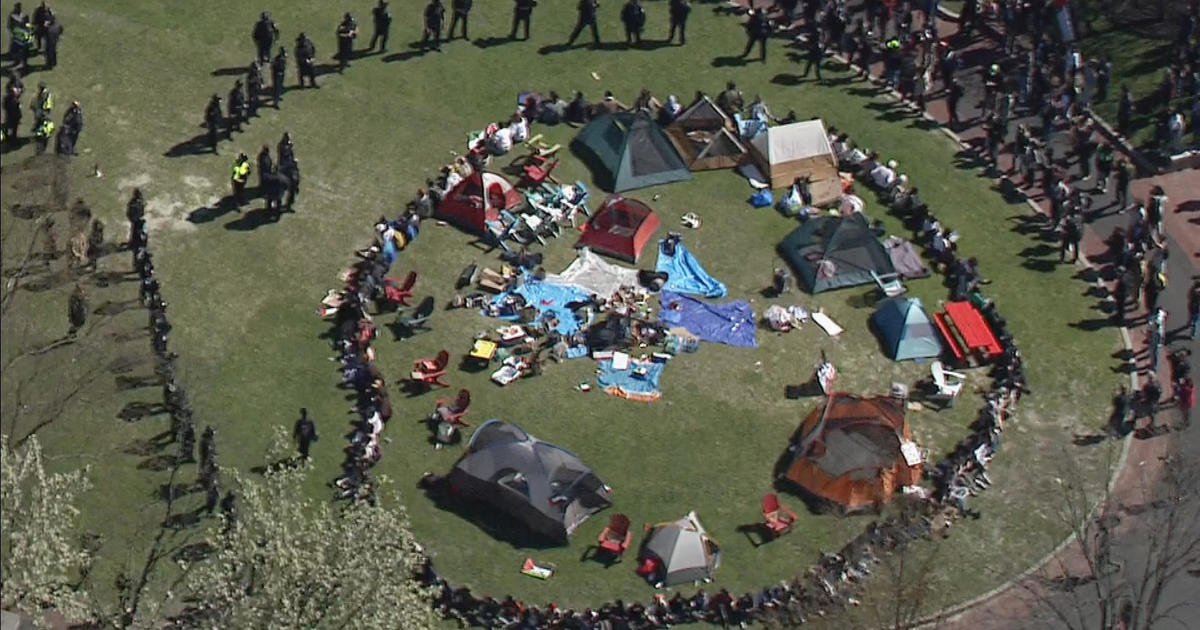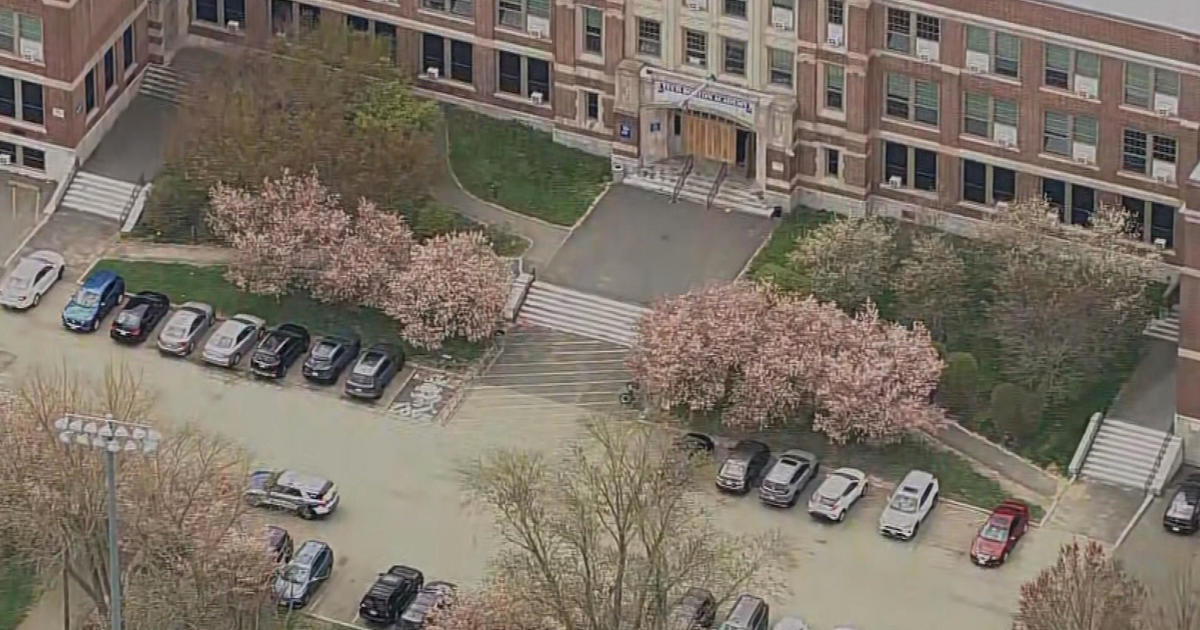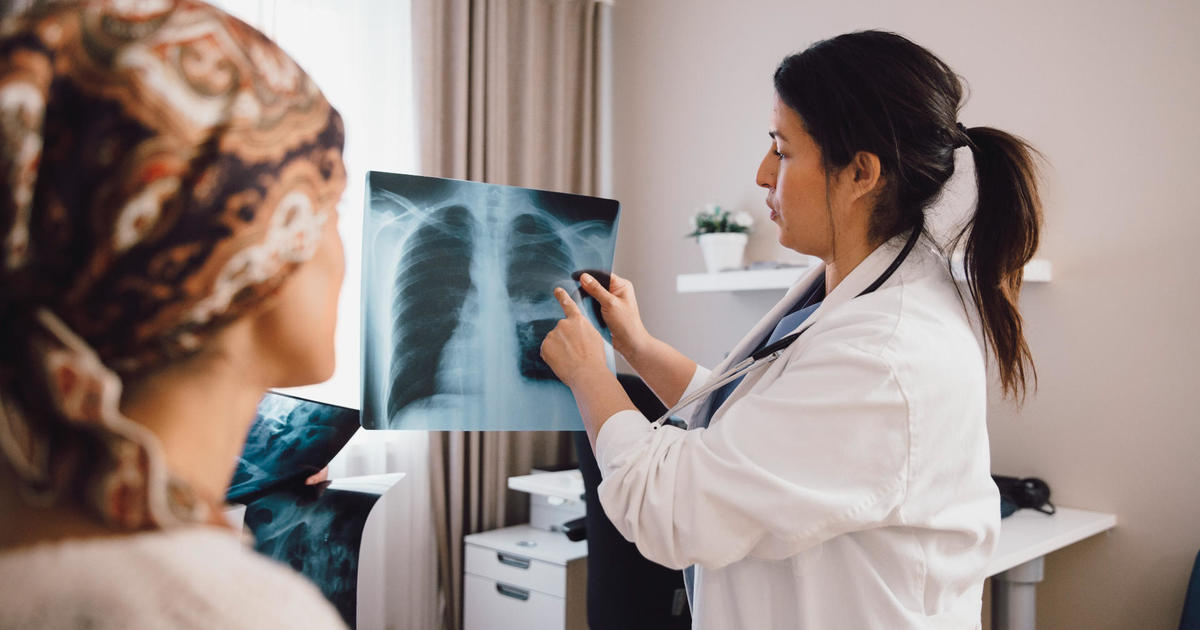Local Study Aims To Identify Early Markers Of Autism
SOUTHBORO (CBS) - Siblings of children with autism have a one-in-five chance of developing autism as well. In a first-of-its-kind study in New England, a local researcher is screening babies soon after birth to see whether the very earliest intervention might help prevent autism in these at-risk children.
"I noticed that her language wasn't increasing," said school teacher Lauren Byron. She suspected her almost 2-year-old daughter, Mackenzie, had autism.
"Still, having somebody else assess your child and tell you that they're on the autism spectrum was kind of devastating," Byron told WBZ-TV.
When her second child, Finn, was diagnosed at 18 months, she said it wasn't as much of a shock and services were already in place.
"It definitely has its challenges - having two kids on the spectrum," she explained. "But I think being a parent has its challenges, so we just stay positive and focus on the fact that our kids are healthy and happy."
When Lauren and her husband, Mark, were expecting their third child, they knew he had a 20-percent chance of developing autism as well.
So they reached out to Dr. Becky MacDonald, a developmental psychologist and director of the Infant Sibling Project at The New England Center for Children in Southboro. Dr. MacDonald and her team are looking for the earliest markers of autism in very young babies and are replicating a Wisconsin study from 2017.
"What they found was that when they identified those markers and treated them right away, they could prevent a full onset of an autism diagnosis," Dr. MacDonald said.
In her study, babies younger than 6 months with affected siblings undergo an assessment in their homes every other week until they're at least 2 years old. Lauren's third child, 3-month old Graeme, is one of those babies.
Dr. MacDonald looks for eye contact, tracking an object from side to side, turning their head to sounds (like the shake of a rattle), babbling and smiling.
If red flags are found, treatment begins immediately.
"I feel as a parent it takes the pressure off of me of staring at him and waiting for the ball to drop," Byron said.
So far, Graeme is doing great, but Byron said she's prepared if he also develops autism.
"We just feel like if Graeme ends up being autistic, we know what that looks like," she explained. "Me and Mark sometimes joke about if he's not autistic, what is that going to look like for us…. For us, this is the world that we live in, and it's a pretty happy world."
The study is still recruiting pregnant women who have a child diagnosed with autism and babies up to 6 months of age with a sibling with autism.
For more information, contact Dr. Becky MacDonald at bmacdonald@necc.org or 508-481-1015 or visit the study's website.
